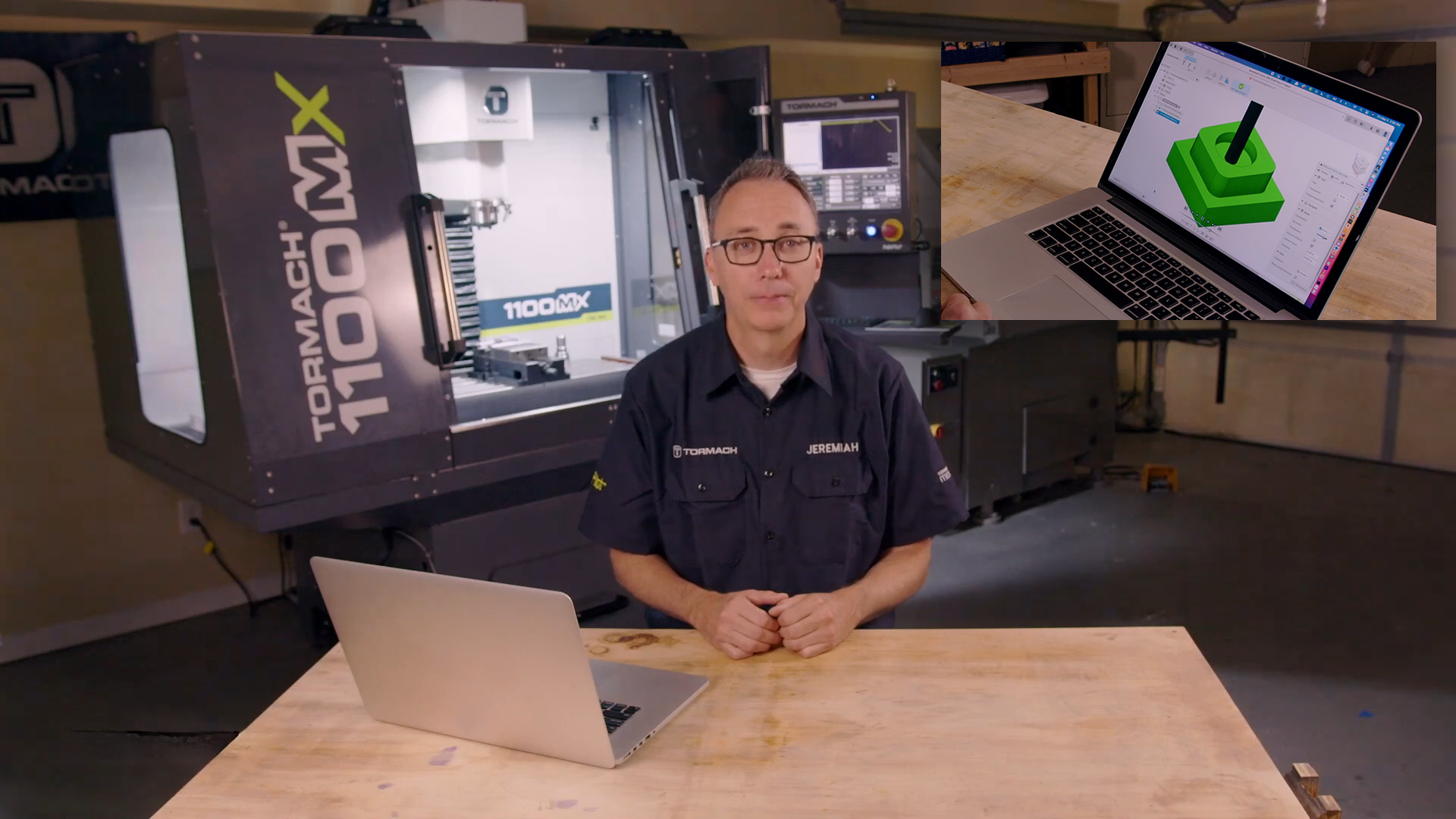Welcome back to the Tormach Garage Series, with your host Jeremiah Daws (Maker / Machinist). In this week’s episode, we are going cover CAD, CAM and conversational software, and provide you with some valuable resources to help get you started using these tools.
CAD: Computer-Aided Design
This is where it all begins. Software like Fusion 360 and Mastercam empower users to craft intricate 3D designs. Essentially, you can create the digital version of a part, with specific dimensions and features (like chamfers, finishes, etc.), and use that blueprint to aid in creating a real part.
CAM: Computer-Aided Manufacturing
This is where the magic happens - creating the tool paths that guide the machine's actions. Fusion 360, Mastercam, SolidWorks and BobCAM come into play here, allowing you to map out the manufacturing journey.
Conversational
This type of programming software lets CNC machinists design tool paths for straightforward parts and shapes right at the machine. You can do this with Tormach's easy-to-use PathPilot® software. PathPilot's powerful conversational programming lets you tweak programs and keeps your project moving forward.
For those eager to learn more about CAD and CAM, invaluable resources are online. The instructional videos by John Saunders at ‘NYC CNC’ and Titan Gilroy's tutorials at ‘Titans of CNC’ have been instrumental in the journey of many machinists. Their passion for teaching shines through, making their content inviting and informative for those just starting out.
Overview of Steps involved in making your part
Step one:
This entails designing the part in your chosen CAD software. This is the creative phase, and for this, Fusion 360 is Jeremiah's tool of choice.
Step two:
With CAM, you'll select the specific tools and operations the machine will perform.
Step three:
This is where you'll set up your workpiece and tooling in the machine, a process we've covered in earlier lessons.
step four:
Once everything is in place, you'll run your program.
Step Five:
The final leg of this journey is quality control. This involves measuring to ensure the part matches your intended specifications, a task easily tackled with calipers or a micrometer.
If you're new to CNC, be sure to watch the previous episodes of the Tormach Garage Series. These informative videos will provide you with a solid foundation as you start on your CNC journey.
Previous Tormach Garage Series Videos
- Part 1: Getting Started with Your Tormach CNC Mill: A Beginner’s Guide
- Part 2: Basics Of Starting Up Your Tormach CNC Mill
- Part 3: Navigating the PathPilot® Interface on Your Tormach CNC Mill
- Part 4: Basics of Work Holding and Work Offsets in CNC Machining
- Part 5: Tools and Tool Holding Essentials for CNC Beginners
- Part 6: Coolant Choices for Optimal CNC Machining


